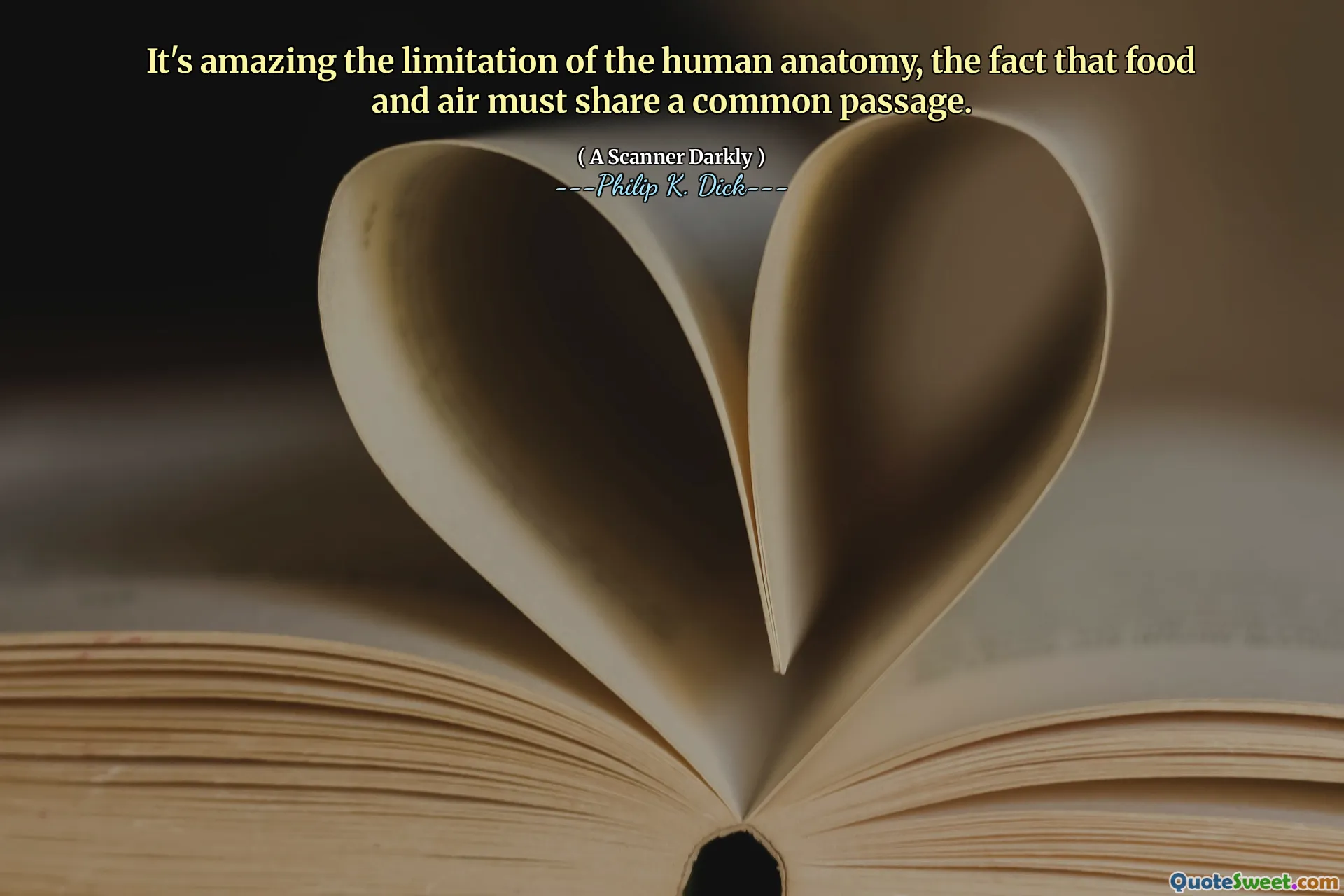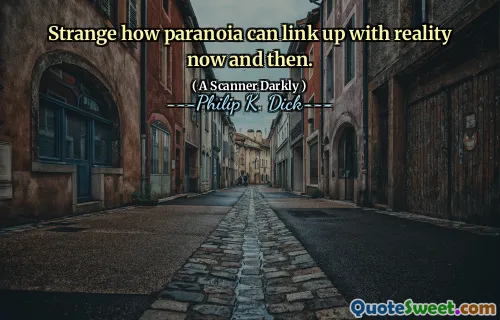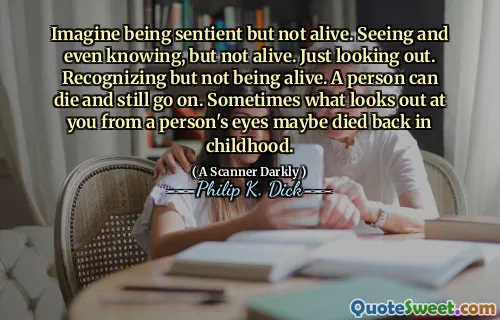
It's amazing the limitation of the human anatomy, the fact that food and air must share a common passage.
In Philip K. Dick's "A Scanner Darkly," the author intriguingly comments on the limitations inherent in human anatomy, particularly the way that food and air must traverse the same pathway. This juxtaposition highlights a fundamental vulnerability of our biology, underscoring how essential functions are interlinked yet can sometimes be at odds with one another. The need to ingest food and breathe simultaneously can create conflicts that reflect larger themes of survival and dependency within the narrative.
This observation serves as a metaphor for the complexities of human experience, suggesting that our bodies impose constraints that can affect our choices and actions. The struggle to navigate these bodily imperfections mirrors the broader societal issues explored in the book, where characters grapple with identity and reality. Dick's insight into the physical limitations of humans resonates with the existential dilemmas that define the human condition, revealing a profound commentary on life itself.











